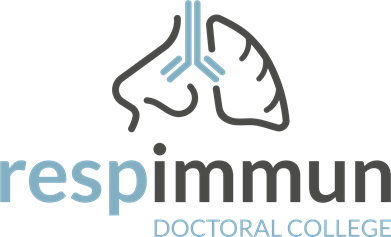
respimmun.at
• Böhm
• Heinemann
Höfler ⏩
• Kargl
• Kwapiszewska
• Leithner
• Marsche
• Marsh
•Moissl-Eichinger
• Olschewski A
• Strobl
• Heinemann
Höfler ⏩
• Kargl
• Kwapiszewska
• Leithner
• Marsche
• Marsh
•
• Olschewski A
• Strobl


The RESPImmun Faculty

|
Gerald HÖFLER, MDLipONCO: Interaction of adipose triglyceride lipase (ATGL) with lung cancer-inducing gene mutations |
|
Diagnostic and Research Center for Molecular Medicine, Diagnostic and Research Institute for Pathology; Medical University of Graz,
Neue Stiftingtalstraße 5, A-8010 Graz;
| |
| websites: [RESPImmun] [DK-MCD] [MUG1] [MUG2] | |
| • Profile ⏬ • Curriculum vitae • PhD students • Grants • Publications | |
Gerald Höfler is a clinical pathologist specialized in molecular and haemato-pathology. His expertise provides the opportunity to combine clinically important observations and pathohistological analyses with basic research. He stablished the role of adipose triglyceride lipase (ATGL) in cancer cachexia and cancer development. Currently, his research focuses on the role of metabolic lipases in lung cancer initiation and progression with a special emphasis on a potential role of inflammation in the pathogenesis of lung cancer. Within the program, he will work closely with Katharina Leithner, Julia Kargl and Horst Olschewski. He is coordinator of the DK-MCD.
Project
Project 11: LipoIMMUNE, Impact of monoglyceride lipase on the tumor microenvironmentCo-PI: Paul Vesely
Background
Monoglyceride lipase (MGL) is the rate-limiting enzyme for monoglyceride (MG) hydrolysis.Hypothesis and objectives
MGL shows context dependent pro- or anti-cancerogenic activities. It promotes oncogenic lipid signaling in tumor cells and at the same time regulates the immune response via the EC system and AA metabolites,Methodology
The conditional pRb/p53 knockout (Rbp53) and conditional KRASG12D (LSL-KRAS) lung cancer models will be applied as LSL-KRAS show substantially denser TAM infiltrates than Rbp53. These models should enable to understand if the extremely diverse roles of MGL in cancer biology can be explained by tumor specific TME. The prospective PhD student will (i) establish Rbp53 and LSL-KRAS mouse lines with conditional or complete lack of MGL, (ii) analyze tumors and TMEs of each tumor model, (iii) perform mechanistical studies to understand interaction of tumor cells and their TME. In year 1, the PhD student will establish experimental cancer models. An MGL-ko line and a conditional MGL-ko (MGL-flox) line are crossbred with either Rbp53 or LSL-KRAS mice. The resultant lines will allow to test the impact of tumor cell specific or systemic MGL-ko in the two different tumor models. InInput from collaborations within the RESPImmun programme
- Hotst Olschewski will provide patient-derived BAL samples,
- Julia Kargl and Katharina Leithner will train the student in fluorescence-aided cell sorting techniques and collaborate with us assessing the immunological TME and its interactions with the tumor cells.
- Leigh Marsh will support the project with his immune cell expertise.